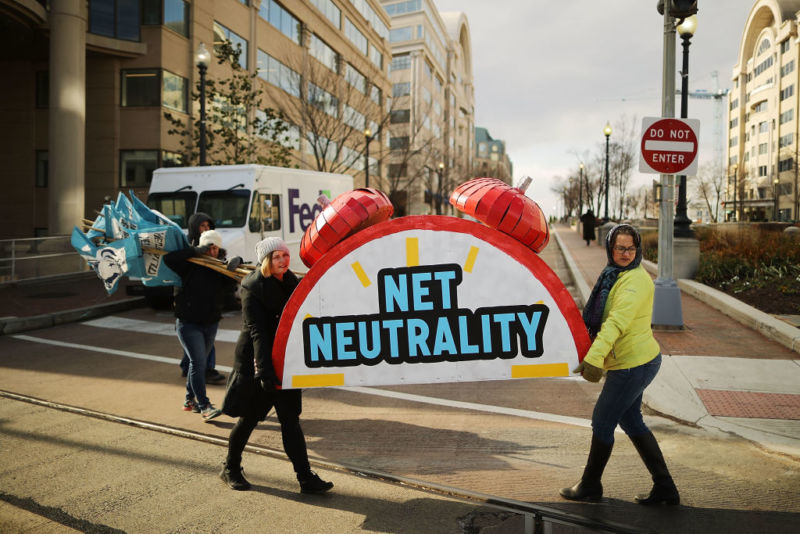
A California state net neutrality bill described as the strongest in the country was approved by a key legislative committee yesterday and is close to final passage.
The bill was approved 9-3 by the state Assembly's Communications and Conveyance Committee, and is "head[ing] to the Assembly floor for a vote next week," bill author Sen. Scott Wiener (D-San Francisco) announced yesterday. All nine yes votes came from Democrats while the three no votes were made by Republicans.
"Today's committee action sending SB 822 to the floor is a big step forward, but we continue to face a huge fight, as the big telecom and cable companies will stop at nothing to kill the bill," Wiener said. "Yet, we have momentum and the support of a broad and diverse coalition that understands the importance of a free and open internet for everyone. I look forward to working with our supporters and everyday Californians to get this vital piece of legislation to the governor's desk."
The bill was already approved by the State Senate in May.
The bill faced a rockier path in the Assembly. The same committee that approved it yesterday gutted the bill in June after pressure from AT&T and cable lobbyists. But Wiener subsequently reached an agreement with Communications Committee Chairman Miguel Santiago (D-Los Angeles) to restore the bill to its stronger form and bring it back for yesterday's vote.
In yesterday's committee vote, the bill was approved "with all key protections intact," Wiener's announcement said.
The bill prohibits Internet service providers from blocking or throttling lawful traffic. Requiring fees from websites or online services to deliver or prioritize their traffic to consumers is also banned. It also imposes limits on data cap exemptions (zero-rating), and says that ISPs may not attempt to evade net neutrality protections by slowing down traffic at network interconnection points.
The Assembly Communications committee also approved a separate bill that requires ISPs to follow net neutrality principles if they provide service to state agencies. That bill still needs a vote from the Assembly Privacy Committee before it can be sent to the Assembly floor.
reader comments
134